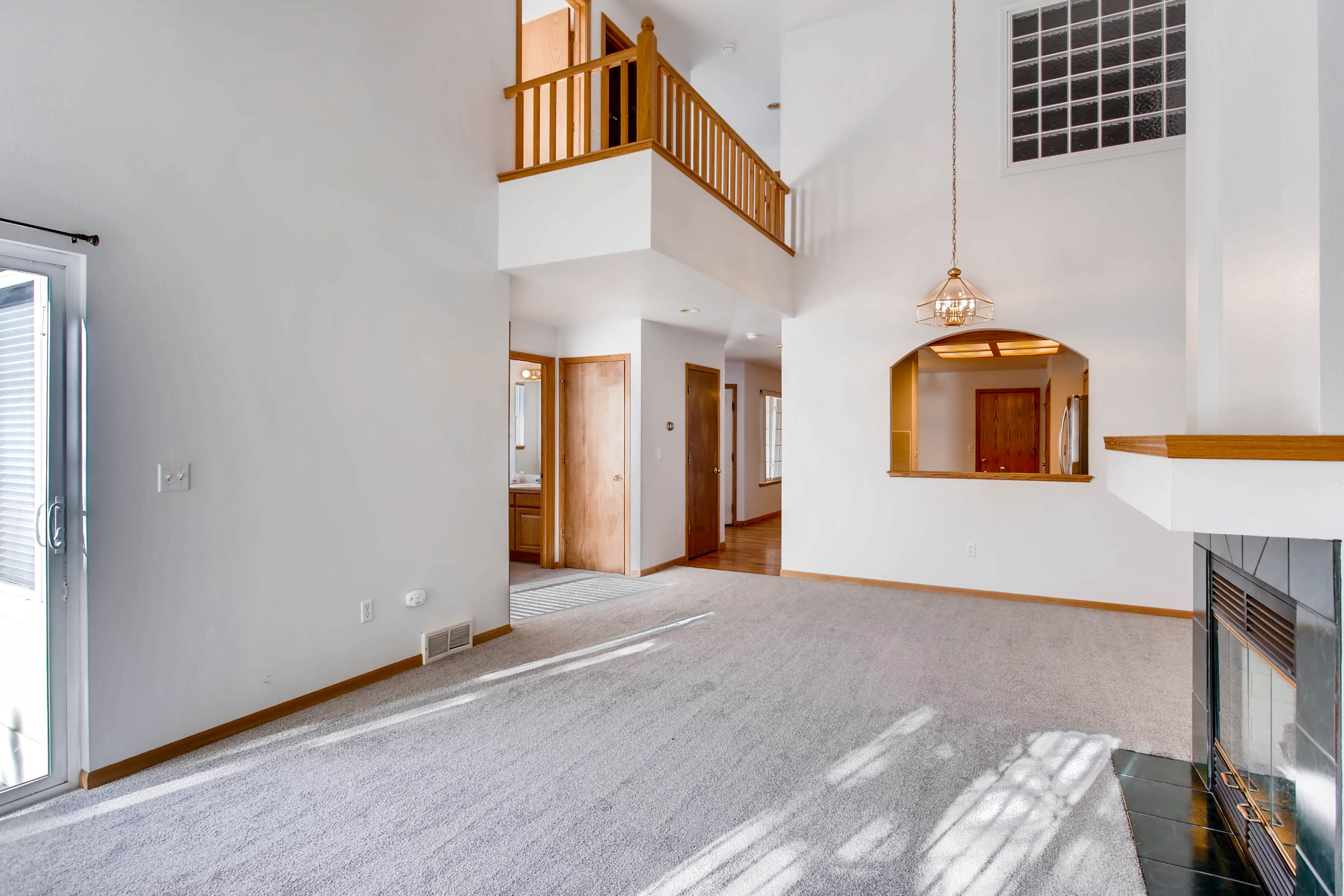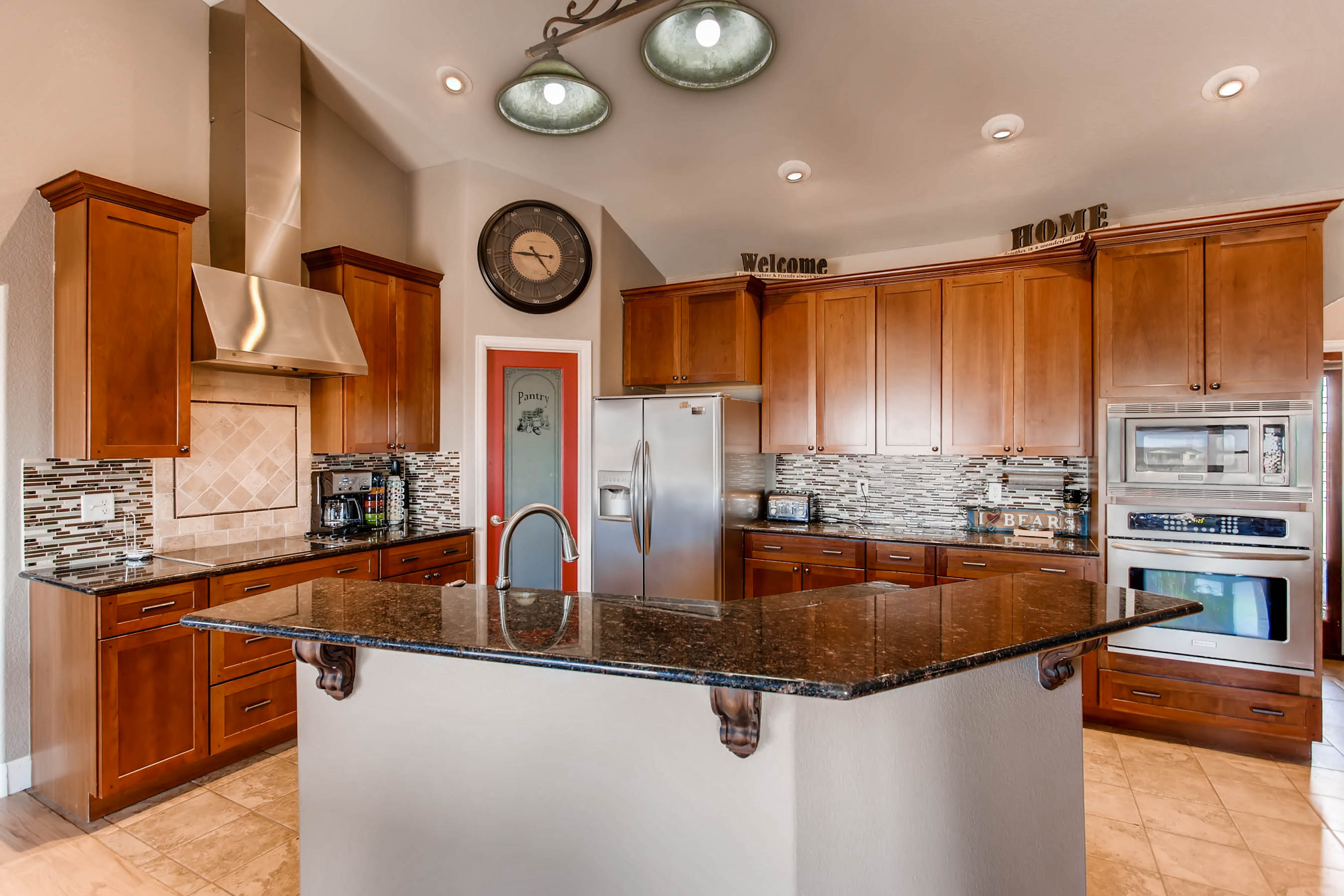Spacious Town Home With Good Bones

Featuring 3 Bedrooms, 4 Bathrooms And Vaulted Ceilings!
https://www.youtube.com/watch?v=wgwQhi6HXm4
Care free living in this spacious and central Fort Collins home. Big windows and great views of mature trees and greenbelts. High vaulted ceilings and an open floor plan make for a delightful home. The large beautiful swimming pool is about a block to the west and is part of the HOA.
For more information, please visit: http://windermerenoco.com/listing/75731946 or call Kyle Basnar at (970) 460-3033.
Questions to ask your home inspector
To get a quality home inspection, ask the right questions before you put your inspector to work. Here are some of the basics.
What does your inspection cover?
Insist that you get it in writing. Then make sure that it’s in compliance with state requirements and includes the items you want inspected.
How long have you been in business?
Ask for referrals, especially with newer inspectors.
Are you experienced in residential inspections?
Residential inspection is a unique discipline with specific challenges.
Do you do repairs or make improvements based on the inspection?
Some states and/ or professional associations allow the inspector to perform repair work on problems uncovered in an inspection. If you’re considering engaging your inspector to do repairs, be sure to get referrals.
How long will the inspection take?
A typical single-family dwelling takes two to three hours.
How much will it cost?
Costs can vary depending upon a variety of things, such as the square footage, age and foundation of the house.
What type of report will you provide and when will I get it?
Ask to see samples to make sure you understand his reporting style. Also make sure the timeline works for you.
Can I be there for the inspection?
This could be a valuable learning opportunity. If your inspector refuses, this should raise a red flag.
Are you a member of a professional home inspector association? What other credentials do you hold?
Ask to see their membership ID; it’s some assurance.
Do you keep your skills up-to-date through continuing education?
An inspector’s interest in continuing education shows a genuine commitment to performing at the highest level. It’s especially important with older homes or homes with unique elements.
Any other good questions to ask? Post yours now!
Alluring Ranch With Mountain Views

Featuring 3 Bedrooms, 2 Bathrooms And A Lovely Landscaped Yard!
https://www.youtube.com/watch?v=CaJIaFcflWo
If move-in ready is what you are looking for, then look no further. This beautiful ranch style home shows pride of ownership throughout. Open floor plan with all of the bedrooms on the main floor. Newer appliances, new lifetime warranty Core-tec flooring and light tubes for energy efficient lighting. Beautifully landscaped yard with front/ back sprinklers and a custom deck with a sun shade to enjoy your expansive mountain views. This home won’t last long, so call for your personal showing today!
For more information, please visit: http://windermerenoco.com/listing/75684778. You may also contact either Jennifer Cuningham or Sarah Schilz at (970) 460-3033.
Custom-Built Farmhouse With A Barn

Featuring 5 Bedrooms, 3 Bathrooms And 9 Acres!
https://www.youtube.com/watch?v=yppAACxrN60
Fabulous country living with a custom-built farm house included! From raising animals to growing your dream garden, this 9 acre property presents endless possibilities. The sprawling 5 bedroom home features an open design, vaulted ceilings and an open kitchen with walk-in pantry. The walk-out basement includes a wet bar and 2-sided fireplace. Enjoy the mountains, plains and pasture from the large deck. Acreage includes large fenced pasture, loafing shed, barn with stalls and a 40 x 60 steel building.
For more information, please visit: http://windermerenoco.com/listing/75506653 or call Jon Holsten at (970) 460-3033.
Sellers: Making the Most of your First Impressions

 As the old saying goes, you only have one chance to make a first impression. If you’re selling your home, it’s true, except that there are several impressions to be made, and each one might have its own effect on the unique tastes of a prospective buyer. I’ve worked with scores of buyers, witnessed hundreds of showings, and I can summarize that experience down to this: a tidy and well maintained home, priced right, listed with professional photographs, enhanced curb appeal and onsite visual appeal will sell fastest. We all know first impressions are very important, but the lasting impressions are the ones that sell your home. It’s not easy, but if you can detach a little and look at your home from a buyer’s perspective, the answers to selling it quickly may become obvious to you.
As the old saying goes, you only have one chance to make a first impression. If you’re selling your home, it’s true, except that there are several impressions to be made, and each one might have its own effect on the unique tastes of a prospective buyer. I’ve worked with scores of buyers, witnessed hundreds of showings, and I can summarize that experience down to this: a tidy and well maintained home, priced right, listed with professional photographs, enhanced curb appeal and onsite visual appeal will sell fastest. We all know first impressions are very important, but the lasting impressions are the ones that sell your home. It’s not easy, but if you can detach a little and look at your home from a buyer’s perspective, the answers to selling it quickly may become obvious to you.
The very first impression your home will make is through its web presence, whether on Windermere.com, the MLS, Craigslist or any multitude of websites. Fair or not, the price is typically the very first thing people look at, and it will be the measurement by which your home is judged. You can always adjust to the right price later, but the impact is lost. It will take something dramatic to get a buyer to reassess the way they feel about the value of your home.
Closely following price are the listing photos. According to this recent article in the Wall Street Journal, professional photos will not only impact your first impressions, it may also make a difference in the final selling price. Great photos might even overcome those initial price objections. Does the exterior photo capture your home at its hi-res best? Does the accompanying text enhance or distract? Online, your home has only a few seconds to capture the home buyer’s attention. If it doesn’t, they’ll click the “Back” button and resume their search. The goal is to have buyers excitedly calling their agents to arrange a showing.
Another old saying is “Location, location, location,” and sure enough, the first live impression of your home is the location. Forget this one; you can’t move your home. There’s not much you can do about location, right? Actually, there is one thing you can do: price it right from the start.
Let’s move on to the first time a buyer sees your home as they pull to the curb out front. Go stand out at the curb and look at it the way you would if you were shopping for a home. Sometimes, a couple hours of labor and $100 worth of beauty bark can be worth thousands in the sales price. I’ve had buyers choose not to get out of the car when we pulled up to a home that they had once been excited to see.
Likewise, I’ve had buyers say they’ve seen enough simply by peaking into the front door. The nose trumps the eyes when it comes to the first impression when entering the house. Buyers get more caught up in the details. Once the home shopper is inside, it’s easy for them to get distracted and focus on something that seems to have nothing to do with the structure they will be buying, from a dirty dish in the sink to a teenager’s bedroom that’s been decorated in posters and/or melodrama. Do everything you can to set a positive lasting impression. The buyer may look at dozens of homes. What is your strategy to convince them to make an offer on yours?
Guest post by Eric Johnson, Director of Education
Considering becoming a landlord? How to evaluate whether to rent or sell your property

Over the last few years, we have seen an increase in homeowners choosing to become landlords rather than placing their homes on the market. In deciding whether or not becoming a Landlord is right for you, there are a number of factors to consider, but primarily they fall into the following three categories: Financial Analysis, Risk and Goals.
 The financial analysis is probably the easiest of the three to assess. You will need to assess if you can afford to rent your house. If you consider the likely rental rate, vacancy rate, maintenance, advertising and management costs, you can arrive at a budget. It is important both to be reasonably correct in your assumptions and to have enough reserves to cover cash-flow needs if you’re wrong. The vacancy rate will be determined by the price at which you market the property. Price too high and you’re either vacant or accepting applicants that, for some reason, couldn’t compete for more competitively priced homes. Price too low and you don’t achieve the revenue you should. If you want to try for the higher end of an expected range, understand that the cost may be a vacant month. It is difficult to make up for a vacant month.
The financial analysis is probably the easiest of the three to assess. You will need to assess if you can afford to rent your house. If you consider the likely rental rate, vacancy rate, maintenance, advertising and management costs, you can arrive at a budget. It is important both to be reasonably correct in your assumptions and to have enough reserves to cover cash-flow needs if you’re wrong. The vacancy rate will be determined by the price at which you market the property. Price too high and you’re either vacant or accepting applicants that, for some reason, couldn’t compete for more competitively priced homes. Price too low and you don’t achieve the revenue you should. If you want to try for the higher end of an expected range, understand that the cost may be a vacant month. It is difficult to make up for a vacant month.
Consider the other costs renting out your property could accrue. If you have a landscaped or large yard, you will likely need to hire a yard crew to manage the grounds. Other costs could increase when you rent your home, such as homeowner’s insurance and taxes on your property. Also, depending on tenant turn-over, you may need to paint and deal with maintenance issues more regularly. Renting your home is a decision you need to make with all the financial information in front of you. You can find more information about the hidden costs of renting here.
If your analysis points to some negative cash-flow, that doesn’t necessarily mean that renting is the wrong option. That answer needs to be weighed against the pros and cons of alternatives (i.e., selling at the price that would actually sell), and some economic guesswork about what the future holds in terms of appreciation, inflation, etc. to arrive at an expectation of how long the cash drain would exist.
Risk is a bit harder to assess. Broadly though, it’s crucial to understand that if you decide to lease out a home, you are going into business, and every business venture has risks. The more you know, the better you can mitigate those risks. One of the most obvious ways of mitigating the risk is to hire a management company. By hiring professionals, you decrease your risk and time spent managing the property (and tenants) yourself. However, this increases the cost. So, as you reduce your risk of litigation, you increase your risk of negative cash-flow, and vice versa… it’s a balancing act, and the risk cannot be eliminated; just managed and minimized.
In considering Goals, what do you hope to achieve by renting your property? Are you planning on moving back into your home after a period of time? Will your property investment be a part of your long-term financial planning? Are you relocating or just hoping to wait to sell? These are all great reasons to consider renting your home.
Keep in mind that renting your family home can be emotional. Many homeowners LOVE the unique feel of their homes. It is where their children were raised, and they care more about preserving that feel than maximizing revenue. That’s OK, but it needs to be acknowledged and considered when establishing a correct price and preparing a cash flow analysis. Some owners are so attached to their homes that it may be better for them to “tear off the band-aid quickly” and sell. The alternative of slowly watching over the years as the property becomes an investment instead of a home to them may prove to be more painful than any financial benefit can offset.
In the process of considering your financial situation, the risks associated with becoming a landlord, and the goals you hope to achieve with the rental of your property, – ask yourself these questions. Before reaching a conclusion, it’s also a good idea to familiarize yourself with the landlord-tenant-law specific to your state (and in some cases, separate relevant ordinances in the city and/or county that your property lies within) and to do some market research (i.e. tour other available similar rentals to see if your financial assumptions are in line with the reality of the competition across the street). If you are overwhelmed by this process, or will be living out of the region, seek counsel with a property management professional. Gaining experience the hard way can be costly.
J. Michael Wilson is the dedicated broker at Windermere Property Management Seattle, and has 17 years of experience managing properties in the Seattle region.
Does the Home of Your Dreams Really Exist?

 Agent: “So, what kind of a house are you looking for?”
Agent: “So, what kind of a house are you looking for?”
Client: “Anything with 3 bedrooms and a couple baths. Oh, and a big yard would be cool, too.”
Agent: “I know of several that we can show you.”
Client: “Just pick three that you think I’ll like, and I’ll buy one of them.”
If only it were that easy. When you ask yourself to visualize the home of your dreams, what comes to mind? Certainly not a nondescript 3 bedroom, 2 bath home. It’s much more likely that your vision could include features like maple flooring, granite counter-tops, 6-panel doors, built-in speakers, or access to 220-electricity in the garage for a workshop. Everyone has their own custom needs and desires.
You’re allowed to be picky. Realistic is imperative, but picky is fine, too. If you’re holding out for diamond insets in the shower tile grout or solid gold door knobs, I’m afraid disappoint awaits you. Think about the most important things a home will represent to you. Do you work from home? Do you entertain large groups regularly? Do you enjoy yard work or do-it-yourself projects? Each family has their own needs, so your definition of the perfect home will be very different from even your closest friends or family members.
Not only does each family have their own needs, but each family member might have their own needs. Pets come into the picture, too. Is high-enough speed internet readily available? Is there a wall that will fit your 60” High-Def 3D TV? Will the family room have enough space that you can compete at Wii™ or Kinect™ without breaking lamps? Will the huge trees that are cooling in summer make the home darker than you like in the winter? Can you bike or run the neighborhood streets? Are you concerned about how your energy consumption will affect the environment? You’re encouraged to list all the things that are important to you.
Once you’ve made your list, prioritize it according to what is important. Figure out what’s a must-have and what would be nice, but not necessary. It might take looking at a few homes to figure out what you want versus what you need. You may love the idea of having Spanish copper sinks throughout the house, but if there were no houses on the market that had them, would you resign yourself to renting indefinitely? On the other hand, you may be working from home and need fantastic data transmission capability. You probably wouldn’t want to look in a rural area that still uses dial up, but promises to have high speed internet cables in the future.
Your agent will learn from your prioritized list, and they should be able to help you find that perfect house. Be brutally honest with yourself, think 10 years into the future, and share your desires freely with those that can help you. You may not find the house that’s 100% of what you wanted, but something very close to the home of your dreams is probably out there.
What are the “deal killers”? What are the most important features on your list?
 By Eric Johnson, Director of Education
By Eric Johnson, Director of Education
Johnson has several years experience as a real estate agent and real estate instructor, as well as experience in construction project management, digital media/publishing and insurance. He has a bachelor’s degree in anthropology from University of Colorado.
What You Need To Know About Buying a Bank Owned Home

 Recently, news about how to purchase a real-estate owned (REO/bank owned) home, foreclosure property or short sale is everywhere. Bank owned homes are sold directly from the lender after the foreclosure process is complete, and while you may save quite a bit of money by choosing to go for this type of home, it is not without trials and tribulations. The process of purchasing a home directly from a lender can be long and arduous, but could very well be worth it in the end.
Recently, news about how to purchase a real-estate owned (REO/bank owned) home, foreclosure property or short sale is everywhere. Bank owned homes are sold directly from the lender after the foreclosure process is complete, and while you may save quite a bit of money by choosing to go for this type of home, it is not without trials and tribulations. The process of purchasing a home directly from a lender can be long and arduous, but could very well be worth it in the end.
If you have your sights on a particular home or are looking to find a deal on your first, working directly with the lender may be your only option. Purchasing a bank owned home is not for the faint of heart, here are some tips for negotiating the REO process:
1. Be prepared: The condition of bank owned properties is usually poor and hard to show. Past owners may have left angry and left the home in bad condition with foul smells, missing appliances, wires taken from breakers, gas fireplaces gone, even bathrooms without toilets and sinks.
2. Understand the costs: Maintenance or repairs may be necessary, since these homes have been vacant for an unknown period of time–sometimes months or years. Keep in mind, when they were occupied the owners could have been under a financial hardship, preventing them from doing regular seasonal care or repairs when needed. Remember as well that the bank is trying to sell the house immediately, so you will receive a financial break in the price rather than a willingness to negotiate on the maintenance and repair issues.
3. Accept the unknown: In traditional real estate transactions, homeowners fill out Form 17 regarding important information about the history of the house. A bank owned home is either exempt or marked with “I don’t know” throughout the document. Not having the accuracy of this 5 page disclosure form could leave you with a lot of unanswered questions on the history of the home.
4. Know what is non-negotiable: The pricing on the house may not get much lower. Some of these properties can be “a dream come true” if you get them at an amazing price, or they could be your worst nightmare. Do your due diligence researching any property, and conduct all necessary inspections to safeguard yourself. Some major repairs may be negotiable, but will likely not reduce the home price.
5. Make a clean offer: The higher the price you can offer, the better. Include your earnest money, keep contingencies to a minimum, and suggest a reasonable closing date. The simpler your offer is, the higher chance you have of the bank accepting your offer or countering in a reasonable time period.
6. Be patient: Consult with a professional who handles bank owned home purchases to help you negotiate the pathway to home-ownership. The process of purchasing a bank owned, foreclosed or short-sale home is typically longer than a typical real estate sale.
What do you want to know about purchasing bank owned, foreclosure and short-sale properties?
Tonya Brobeck is a Broker at Windermere Lake Stevens. She has a total of 17 years combined residential real estate and worldwide resort sales & marketing experience.
Just a Dash of Feng Shui

 What is a home if not personalized to those who share its walls? Feng Shui is intended to create a place of peace, balance and harmony for you and yours. You can achieve this type of atmosphere through the things you bring into your home and the way that you stage your environment.
What is a home if not personalized to those who share its walls? Feng Shui is intended to create a place of peace, balance and harmony for you and yours. You can achieve this type of atmosphere through the things you bring into your home and the way that you stage your environment.
Feng Shui helps enhance your space and deliver positive energy by creating a more comfortable, clutter-free environment, and incorporating the influential elements found in nature. A recent article titled Feng Shui Basics for Home Decorating provides what I consider the simplest definition: “the use and placement of objects and materials to create a harmonious flow of life energy. As such, the design of each room should be based on the people who use it the most.”
To better understand Feng Shui, it is important to know the elements in which it is grounded: Water, Earth, Fire, Metal and Wood. Incorporating these elements into your home can be surprisingly simple, inexpensive, and do-it-yourself.
Element by element, here are some ideas and explanations of Feng Shui for your home:
-
- Water: The water element also includes wind. Blues and blacks represent this element, as does integrating a water source in a home, which gives off a presence of refreshing movement. Rock fountains and indoor aquarium tanks are common in Feng Shui-oriented homes.
Using mirrors in your home can be another way to incorporate the water element. The reflective surface of a mirror is similar to the properties given off by a pond or lake. A fashionable mirror can be arguably as attractive as a framed picture, and doubles as being resourceful when you would like to check out your look. Decorating with mirrors can be perfect for a living room space that needs light and enlargement, and a flow of movement.
The living room is typically one of the largest shared spaces of movement in a home, so incorporating a tasteful mirror in this room would be oh-so-appropriate.
-
- Earth: “Adding the earth element to your home quarters strengthens feelings of safety and security. The grounding support of earth energy should bring comfort to the soul and tone things down” is how Happy Home Zone describes home decorating with the earth element.
A simple way to add the earth element to your home is by use of color, and earth tones are the most obvious source. But if tans, browns and oranges are not your thing, try a deep red, mossy green or an off shade of white.
You don’t need to paint every wall or replace your furniture. Start small with a cream throw or piece of artwork. Cream is a color that matches almost any other. Earth tones in beiges, brown, tans and off-whites are also aesthetically pleasing accent colors.
Due to the calming, soothing properties earth tones extract, your bedroom would be a perfect place in which to add this element.
-
- Fire: Another element you may consider incorporating into your bedroom is fire, due to its association with passion, happiness and love. Keep in mind, however, that fire should be used lightly; in large amounts its passionate properties can give off anger vibes.
An article titled How to Decorate with Earth, Fire, Wind and Water suggests incorporating the fire element through the use of “silks and synthetic fabrics, images of sunrises, geometric abstracts, triangular shapes, animal patterns, the color red and candles”.
Candles are always in style, fit well in nearly any room, and come in a variety of shapes and sizes. They can be inexpensive to buy or a fun Do-It-Yourself craft project. A candle display can work nicely in a bathroom and double as an air freshener.
-
- Metal: According to Spiritual Feng Shui.com, “metal is a symbol of wealth and protection. Metals include stainless steel, aluminum, sterling silver, or iron.”
One of the most obvious places to incorporate metal would be in your kitchen. But metal has taken on a new trend outside of kitchen appliances; metal decorations can be used in any room you choose, and can be trendy and tasteful for both men and women. Check out these great precious metals and be inspired!
-
- Wood: The wood element represents growth, and can be incorporated through almost any vegetation you choose to bring into your home. Indoor herb gardens or a potted houseplant can enhance your home aesthetically by being decorative and fragrant.
Growing your own edible vegetation can be a profitable experience, saving money on your grocery bill and adding flavor to your food. But if you lack the outdoor space to do it, read how indoor gardens can be accommodating. Indoor gardening is something your entire household can get involved in and enjoy.
Essentially, among other properties, Feng Shui is about balance – balance in your environment for you and for those with whom you who share your space. If Feng Shui is something you are interested in, start by adding a few of these elements into your décor and gradually increase them as you see fit, to find what balances your home best for YOU.
How do you achieve balance in your living space?
Brittany Lockwood works in Marketing at Windermere Real Estate. She is the in-house expert on weatherizing, yard-sales and interior design. She lives in Seattle in a renovated condo which she enjoys re-arranging and decorating.
 Facebook
Facebook
 X
X
 Pinterest
Pinterest
 Copy Link
Copy Link



 Purchasing a home can be a complex endeavor for even the most well prepared home buyer. You’ve diligently saved for your
Purchasing a home can be a complex endeavor for even the most well prepared home buyer. You’ve diligently saved for your 


